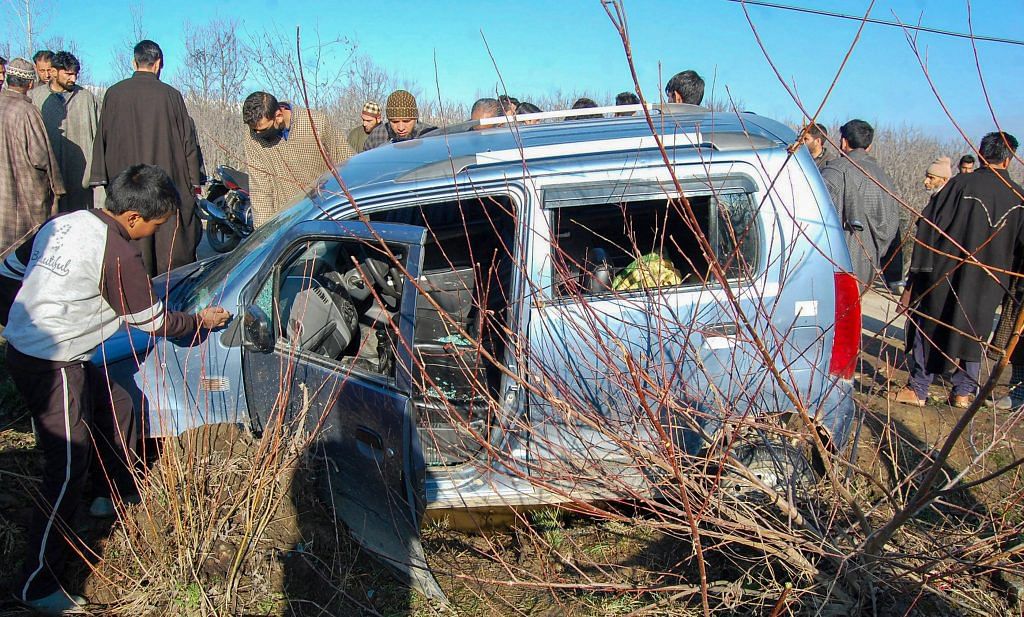The ambiguity over the use of the term ‘OGW’ continues as J&K chief minister and the Indian Army clash over the deaths of two civilians in the Kashmir valley.
New Delhi: Parts of South Kashmir remained shut as protests continued over the killing of four persons in Shopian district Sunday. While the Army has maintained that four of the six persons killed were OGWs or Over-Ground Workers, Chief Minister Mehbooba Mufti tweeted Monday that they were civilians.
In her tweet, Mufti said she was deeply distressed by the killings of “civilians caught in the crossfire” and offered her condolences.
The Army said that the occupants of two cars opened fire at a vehicle check-post and six persons were killed when they retaliated. The Army spokesperson has said all the people killed were linked to militancy, and four of them were OGWs.
Many political parties and civilians have refuted this version of events and claimed the four were civilians caught in the crossfire that had been killed indiscriminately.
However, the Army’s classification has reopened the debate on what an OGW really is, and who can be described as one.
Who is an OGW?
Jammu and Kashmir Police categorises “anybody who supports the militants” as an OGW, an official said, on condition of anonymity. A person providing a safe house, passage, information or acting as a messenger for suspected militants automatically comes under the radar of the police as an OGW, the official said.
The police and media also use the term OGW interchangeably with “accomplice”.
In February 2016, Army Chief General Bipin Rawat said that anyone who attempts to rescue militants or interferes in an anti-militancy operation will be considered “overground workers of terrorists” and would face harsh action.
‘OGW a term created by security agencies to legitimise violence’
“There is no proper definition of the term,” said Khurram Pervez, spokesperson of the Jammu Kashmir Coalition of Civil Society (JKCCS)
The Army needs to be able to prove legally why a person has been termed an OGW, he said.
Pervez said OGW is not a legal term and they are defined on the basis of intelligence inputs. There is no law to categorise civilians, he said.
“Civilians are either combatants or not-combatants,” he said.
Terming people as OGWs is an excuse used by security agencies, Pervez said.
“This is paranoia created by security agencies to legitimise violence and to create impunity for themselves,” he said.
With inputs from Rahiba Parveen in Srinagar
